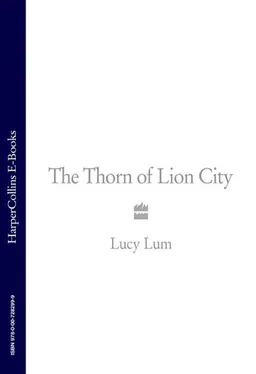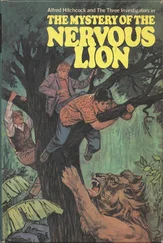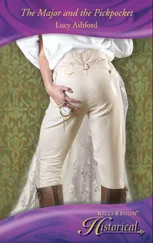With more money and a big house to show off, my grandmother and my mother began to transform themselves. They invited old and new friends to play mah-jongg and for meals, and we had visitors almost every day. When Father returned from work, he had to smile at people he hardly knew. My mother stopped doing housework and caring for us to spend most of her time attending to her makeup and going out with her friends. She would see our former neighbours from Tanglin, Mr and Mrs Khoo, and together they would go ballroom dancing and never missed a Sunday tea-dance. She bought a gramophone and invited them to our new house to practise the waltz, the quickstep and the tango. She urged my father to learn, but ballroom dancing was not for him, although he joined in to humour her.
On most Friday evenings two square tables on the veranda were wiped down so that my parents, Popo and the same five friends could play mah-jongg . I was already an expert at setting the mah-jongg tables but although I felt I could play as well as they did, I was never allowed to. First I lined a table with five or six layers of brown paper to lessen the constant noise of the solid white bricks knocking against each other. Then I poured out the 144 little bricks and left them for the players to ‘wash’. Next I counted the chips needed for each player and placed a set before each chair.
The atmosphere at the two tables was very different. At my father’s there was quiet, cheerful conversation and analysis of the play. At Popo’s, there was loud chatter and the slamming of bricks as the game went on. When Popo, using all her ingenuity to outguess her equally skilled opponents, mistakenly gave away the one brick needed by someone else, she would excuse herself to ‘wash away’ the bad luck: she would visit the lavatory and wash her face, then light joss sticks at the altar and pray for the return of good fortune.
We were allowed to stand behind the players to watch them select and discard the bricks. Miew-kin and I had to empty the ashtrays, which Popo and some of the other chain-smoking players soon filled again, and refill their cups with black coffee. Beng would sit beside Popo. The games went on for four hours; sometimes the players would break for dinner, and carry on afterwards until early morning.
The number of guests made extra work in the house and Popo engaged a cook. Dai-chay came from the same coolie fong as Sum-chay and knew her own value: she stated at her interview that she would do no housework and would shop where she pleased. She was short, with enormous buttocks, breasts that hung to her waist, and a deafening voice. Before she agreed to take the job, she strode about our house to inspect it. As we soon discovered, she detested children and took much pleasure in telling tales about us to our parents and Popo. We were forbidden to enter her kitchen without her consent to get drinks and snacks.
Until now Popo had collected the rent every month from her tenants, but now that she had a successful son-in-law and lived in a big house with an experienced cook, she was too proud to do it. Instead she paid her friend Tai-pow Wong, whom everyone called Gasbag Wong, to collect it and deliver the money to her. Popo and Gasbag Wong had been friends from the time when they had first been neighbours in Chinatown. Gasbag Wong was a go-between, doing deals and running errands for a living, and knew many people. Sometimes she helped drug addicts and debt-ridden gamblers to sell their children. Boys were usually reserved before birth by families who had no sons and were willing to pay large sums, but girls were readily available and sold as muichai . Although this was against a law introduced by the British, the trade in girl slaves was widespread in Singapore.
On one of her visits Gasbag Wong arrived with a big smile. She normally came alone at the end of each month to deliver the rent money, but this time there were three girls with her, between ten and twelve years old. They looked pathetic and frightened. There were holes in their clothes and they were not wearing shoes. Popo handed a roll of money to Gasbag Wong and ordered them to kneel. Then she said, ‘You must be obedient. If you run away, you will be severely punished and your parents must pay back a lot of money.’
Popo’s family in China had owned muichai rather than employ servants and she was happy to disobey the law. In the households of their owners the muichai lived in fear and drudgery. They could be sexually assaulted, beaten, given away to other families or sold by their owners as wives or prostitutes. They were paid nothing and wore their mistress’s old clothes. One of the most distressing ordeals for a muichai was to be sent back to her parents if she was disobedient. The parents were usually so poor that they would refuse to accept her for fear of having to repay the money they had received from selling her into slavery.
While the girls were kneeling, our cook Dai-chay walked into the room. She looked at them, sniffed the air and said to Popo, ‘How can I cook with such a foul smell coming into my kitchen?’ It was clear that they had not washed for some time so they were ordered to the bathroom to bathe and have their hair trimmed, then told to try on some of my mother’s old clothes. The blouses were taken in, the trousers shortened to fit, and then they were summoned before Popo. The transformation was remarkable. Two of the girls were cousins and their names were Lai-yuen and Lai-pin. But Popo did not like the first part of their names, Lai, meaning ‘to look askance’, so she changed it to ‘Ah’, renaming them Ah-pin and Ah-yuen. The other girl was Yan-fok.
Popo chose Ah-pin as her personal maid because she had a pleasant face and would wash and iron Popo’s costly silk clothes. Yan-fok had to do the menial work and was at the beck and call of the household, including Sum-chay and Dai-chay. The muichai worked non-stop, hurrying to answer every call in fear of a beating or a knuckle round the head and they were not allowed out on their own. Neither were they given time off to visit their families.
After many weeks of learning how to do the housework, Ah-yuen was sent to Aunt Chiew-foong, who by now had had her first child and was expecting a second. My aunt said that her husband Cong would not waste money employing a servant, but he had no objection to accepting a free muichai who could take his blind mother her meals, empty her enamel pot and clean her as she lay on her bed, day after day, guarding her gold jewellery. Before she handed over the muichai , Popo was careful to point out to my aunt and uncle that Ah-yuen would continue to remain her property and only she could decide her ultimate fate.
Eight
Not long after the muichai arrived, my mother had her sixth child, a girl. My sister, Miew-lan, was premature and underweight. Mother was disappointed that she wasn’t a boy and refused to breastfeed or care for her when they returned from the hospital. She engaged a live-in amah to look after her but the amah was young and inexperienced. My father had strong misgivings about employing her because my sister, who weighed no more than four pounds, was so tiny and fragile.
‘This amah has never looked after premature babies. Can she be trusted to care for one so small?’ Father asked.
‘Well, I’m not going to nurse her. If you don’t trust the amah , you can look after her yourself,’ Mother replied.
As she had done after each birth, my mother washed every day in fragrant water and ate the specially prepared pigs’ trotters at every meal. Most of our Chinese relatives and friends were superstitious and considered a house unclean until a new baby was a month old. My mother was impatient for the cleansing ceremony to be over so that her friends could visit again. She spent the evenings before bedtime leafing through the calendar, sighing, ‘I wish tomorrow was Miew-lan’s full month.’ When at last that day arrived, the ceremony was performed. Sprays of leaves from the pomelo tree were added to the baby’s bathwater and Miew-lan was rubbed with them to purify her and bring her luck. My mother dipped her own hair and body in the same water and then we sat down with some friends to eat pig’s trotters. After the meal the guests were sent on their way with hard-boiled eggs for good luck, the shells dyed bright red.
Читать дальше












